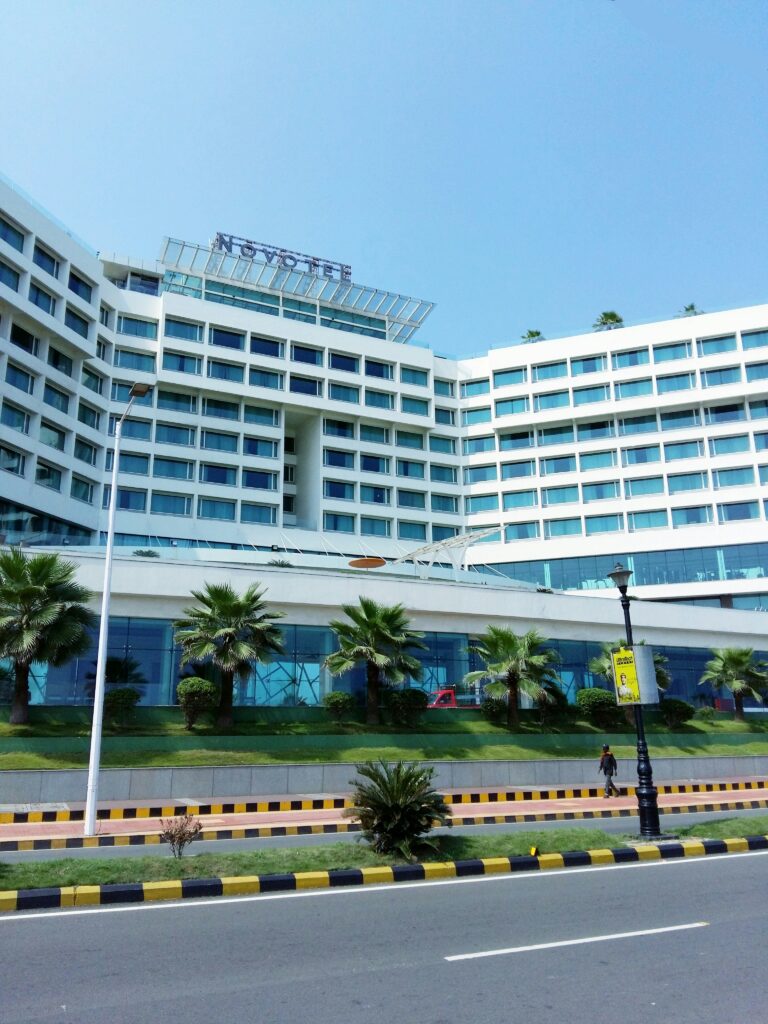Welcome to the world of smart cities, where technology and sustainability come together to create vibrant urban spaces that enhance quality of life for residents and visitors alike. In this article, we will explore how smart cities are revolutionizing the way we live, work, and play through the integration of cutting-edge technology and environmentally-conscious practices. From energy-efficient buildings and smart transportation systems to digital infrastructure and community engagement initiatives, smart cities are shaping the future of urban living in exciting and innovative ways. Join us on a journey to discover how these tech-enabled urban environments are paving the way for more connected, efficient, and sustainable cities for generations to come. Have you ever wondered what it takes to create a smart city? How can technology be used to improve the quality of life for citizens and promote sustainability in urban environments? In this article, we will dive into the world of smart cities – from the benefits they bring to the challenges faced in their development.
What is a Smart City?
A smart city is an urban area that uses different types of electronic data collection sensors to supply information used to manage assets and resources efficiently. The primary goal of a smart city is to improve the quality of life for its citizens through technology, sustainability, and innovation.
So, imagine a city where traffic lights adjust in real-time based on traffic patterns, waste management is optimized through the use of sensors, and citizens can access public services through a single digital platform. That’s the vision of a smart city – a connected, sustainable, and efficient urban environment.
How Can Technology Transform Cities?
Technology has the power to transform traditional cities into smart cities by integrating various components to improve efficiency and sustainability. From transportation and energy management to healthcare and public safety, technology plays a key role in modernizing urban environments.
By using data analytics and automation, cities can make better decisions, reduce costs, and improve services for their residents. The integration of technology in everyday city functions holds the promise of a more sustainable and efficient future.
Benefits of Smart Cities
The creation of smart cities brings a multitude of benefits for both the local government and its residents. Let’s take a look at some of the key advantages:
Improved Quality of Life
Smart cities aim to enhance the quality of life for citizens by providing better services, infrastructure, and utilities. From smart transportation systems that reduce commute times to digital healthcare services that promote well-being, the overall well-being of residents is prioritized in smart cities.
Sustainability and Environmental Impact
One of the core principles of smart cities is sustainability. By optimizing energy consumption, reducing waste, and promoting renewable resources, smart cities aim to minimize their environmental impact and create a more sustainable future. Through initiatives like smart grid systems and eco-friendly transportation options, cities can work towards a greener and cleaner environment.
Efficient Public Services
Technology allows cities to streamline public services and improve their efficiency. From online platforms for citizen engagement to smart waste management systems that optimize collection routes, public services become more accessible and responsive in smart cities. By leveraging technology, governments can deliver services more effectively and address the needs of their residents in a timely manner.
Economic Growth and Innovation
Smart cities attract investment, talent, and innovation by positioning themselves as hubs for technology and sustainability. By creating a conducive environment for businesses to thrive, smart cities can drive economic growth, create job opportunities, and foster a culture of innovation. The integration of technology in everyday city functions encourages entrepreneurship and creativity, leading to a vibrant and dynamic urban ecosystem.
Enhanced Safety and Security
Technology plays a crucial role in enhancing the safety and security of cities. From smart surveillance systems that monitor public spaces to emergency response systems that provide quick assistance, smart cities prioritize the well-being of their residents. By using data analytics and real-time information, cities can respond more effectively to emergencies and prevent potential threats, creating a safer environment for everyone.

Challenges in Building Smart Cities
While the concept of smart cities holds great promise, there are also challenges that need to be addressed in their development. From infrastructure limitations to data privacy concerns, building smart cities requires careful planning and collaboration. Let’s explore some of the key challenges faced:
Infrastructure and Connectivity
One of the primary challenges in building smart cities is the development of infrastructure and connectivity. From high-speed internet access to sensor networks and communication systems, the underlying infrastructure is essential for the functioning of smart city technologies. However, many cities face limitations in terms of outdated infrastructure, budget constraints, and logistical challenges. Investing in infrastructure upgrades and expanding connectivity is crucial for the success of smart city initiatives.
Data Privacy and Security
As smart cities collect vast amounts of data to optimize operations and services, concerns around data privacy and security arise. Protecting sensitive information, ensuring compliance with data regulations, and preventing cybersecurity threats are essential aspects of building a trustworthy smart city ecosystem. Addressing these concerns requires robust data protection measures, transparency in data usage, and collaboration with stakeholders to build trust among residents.
Interoperability and Standards
Another challenge in building smart cities is the interoperability of systems and the lack of standardized protocols. With diverse technologies and platforms being used for different functions, integrating these systems seamlessly can be complex. Establishing interoperability standards, open data initiatives, and common frameworks is essential to ensure the compatibility and scalability of smart city solutions. Collaboration among stakeholders and adherence to international standards can facilitate the smooth deployment of smart city technologies.
Citizen Engagement and Participation
Engaging citizens in the development and implementation of smart city initiatives is crucial for their success. From gathering feedback on services to involving residents in decision-making processes, citizen engagement promotes transparency, accountability, and inclusivity in smart city governance. However, many cities struggle to foster active citizen participation due to lack of awareness, digital literacy, or communication channels. Enhancing citizen engagement through online platforms, community outreach, and public consultations can create a more collaborative and responsive smart city environment.
Funding and Sustainability
Financing smart city projects and ensuring their long-term sustainability are ongoing challenges for many cities. From securing initial investments to generating revenue streams and cost recovery models, financial planning is critical for the viability of smart city initiatives. Moreover, achieving financial sustainability requires balancing economic benefits with social and environmental goals, ensuring that smart city projects contribute to the holistic development of urban areas. Exploring innovative funding mechanisms, public-private partnerships, and sustainable business models can help cities overcome financial constraints and build resilient smart city ecosystems.
Technologies Driving Smart Cities
The advancement of technology plays a pivotal role in driving the evolution of smart cities. From IoT devices and sensors to AI algorithms and big data analytics, a wide range of technologies are being deployed to transform urban environments. Let’s explore some of the key technologies driving smart cities:
Internet of Things (IoT)
The Internet of Things (IoT) is a network of interconnected devices that collect and exchange data over the internet. In smart cities, IoT devices such as sensors, cameras, and actuators are used to monitor and control various aspects of urban life. From smart traffic lights and parking systems to environmental sensors and building automation, IoT enables real-time data analysis and decision-making, improving the efficiency and sustainability of city operations.
Artificial Intelligence (AI)
Artificial Intelligence (AI) is the simulation of human intelligence processes by machines, including learning, reasoning, and problem-solving. In smart cities, AI algorithms are used to analyze data, predict trends, and optimize services. From traffic management and energy consumption to healthcare diagnostics and emergency response, AI capabilities enhance the efficiency and effectiveness of city systems. By leveraging AI technologies, cities can automate processes, reduce costs, and improve the overall quality of life for residents.
Big Data Analytics
Big Data Analytics involves the process of examining large and complex datasets to uncover hidden patterns, correlations, and insights. In smart cities, big data analytics is used to analyze vast amounts of information generated by IoT devices, social media, and other sources. By extracting valuable insights from data, cities can make informed decisions, optimize resources, and improve services. From urban planning and resource allocation to disaster response and public health management, big data analytics enables data-driven solutions to urban challenges.
Cloud Computing
Cloud Computing refers to the delivery of computing services over the internet on a pay-as-you-go basis. In smart cities, cloud computing provides scalable and cost-effective solutions for storing, processing, and accessing data. From smart city platforms and applications to data storage and analysis tools, cloud computing enables efficient and secure operations. By leveraging cloud services, cities can reduce infrastructure costs, enhance scalability, and facilitate collaboration among stakeholders.
Blockchain Technology
Blockchain Technology is a decentralized and secure digital ledger that records transactions across a network of computers. In smart cities, blockchain is used to ensure transparency, security, and trust in data exchange and transactions. From smart contracts and digital identities to secure data sharing and payment systems, blockchain technology enhances the integrity and reliability of city operations. By leveraging blockchain solutions, cities can minimize fraud, improve accountability, and foster a more resilient and efficient urban ecosystem.

Case Studies: Success Stories in Smart City Development
Several cities around the world have successfully implemented smart city initiatives to enhance their sustainability, efficiency, and quality of life for residents. Let’s take a closer look at some of the notable case studies in smart city development:
Singapore – The Smart Nation
Singapore is renowned for its ambitious smart city initiatives under the Smart Nation program. With a focus on leveraging technology to improve public services, infrastructure, and governance, Singapore has implemented various smart solutions to address urban challenges. From smart transportation systems and digital healthcare services to sustainable energy management and urban planning, Singapore’s smart city projects aim to create a more livable and resilient city for its residents.
Barcelona – The Connected City
Barcelona has emerged as a leading smart city with its innovative approach to urban development. By integrating IoT technologies, data analytics, and citizen engagement, Barcelona has transformed into a connected city that emphasizes sustainability, efficiency, and inclusivity. From smart lighting and waste management to digital citizenship platforms and open data initiatives, Barcelona’s smart city projects have improved the quality of life for its residents and created a vibrant urban environment.
Amsterdam – The Smart Mobility Hub
Amsterdam is known for its smart mobility solutions that promote sustainable and efficient transportation systems. From smart bike-sharing programs and electric vehicle charging stations to real-time traffic management and mobility apps, Amsterdam’s smart city initiatives focus on reducing congestion, emissions, and commute times. By investing in smart mobility infrastructure and digital services, Amsterdam has become a model for urban mobility innovation and sustainability.
Dubai – The City of the Future
Dubai is setting new benchmarks in smart city development with its futuristic projects and innovative technologies. From smart buildings and energy-efficient infrastructure to AI-powered services and autonomous vehicles, Dubai’s smart city vision aims to create a seamless and sustainable urban experience. With initiatives like the Dubai Smart City Strategy and the Dubai Future Accelerators program, Dubai is shaping the future of urban living through technology, innovation, and sustainability.
Conclusion
As we look towards the future of urban development, smart cities offer a compelling vision of sustainable, tech-enabled environments that prioritize the well-being of their residents. By leveraging technology, data, and innovation, cities can transform traditional urban landscapes into smart, efficient, and resilient ecosystems that benefit both the local community and the environment. From improving public services to enhancing safety and security, smart cities hold the promise of a more connected, sustainable, and livable future for all. Embracing the principles of smart city development requires collaboration, creativity, and a shared vision for building vibrant and inclusive urban environments that empower residents and drive positive change. Let’s work together to shape the cities of tomorrow and create a brighter future for all.
